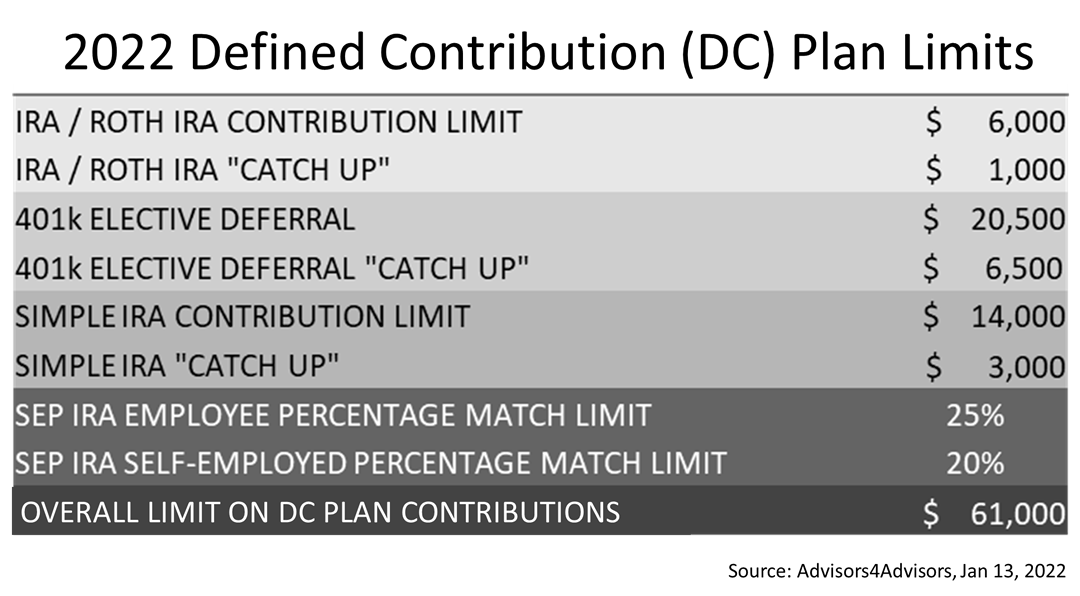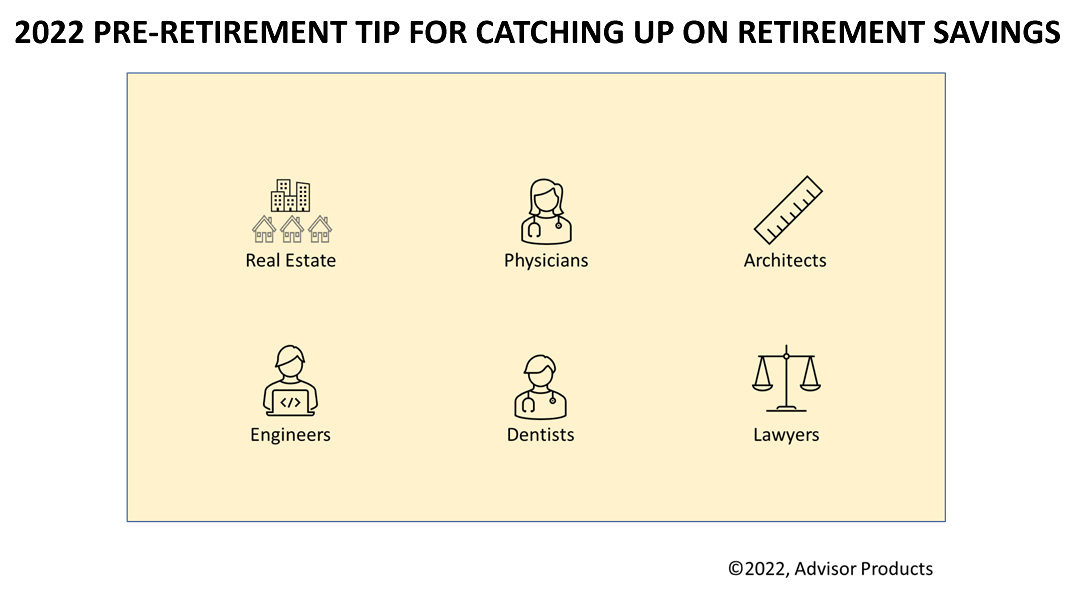An Asset Protection Tip For Professionals And A Way For Pre-Retirees To Catch Up On Retirement Saving
Published Wednesday, January 19, 2022 at: 11:02 PM EST
If you’re a pre-retiree who needs to catch up on retirement saving, or if you don’t need the income from some of your IRA or 401(k) accounts and want to leave them for your children, here are the limits on contributions to federally qualified defined contribution retirement plans for 2022.
The overall limit on contributions to defined contributions plans in 2022 is $61,000. That’s up $3000 from 2021. For baby boomers in the workforce trying to a create a larger nest egg, DC plans are a key option for accelerating savings in federally qualified retirement accounts.
You can contribute up to $20,500 to a 401(k) plan now, $1000 more than in 2021. The contribution limit on SIMPLE IRAs is $500 higher than in 2021, rising to $14,000 in 2022.
Architects, engineers, physicians, lawyers, dentists, and other professionals all live in this world with professional liability. An LLC or corporate entity does not limit their exposure. But federally qualified DC plans do protect those assets from creditors, including lawsuit judgments resulting from a malpractice lawsuit. The protection from liability lawsuits and other creditors generally begins a year after you make a contribution to the plan. Thus, it is best to make DC plan contributions as early in the year as is feasible.
Nothing contained herein is to be considered a solicitation, research material, an investment recommendation, or advice of any kind, and it is subject to change without notice. Any investments or strategies referenced herein do not take into account the investment objectives, financial situation or particular needs of any specific person. Product suitability must be independently determined for each individual investor. Tax advice always depends on your particular personal situation and preferences. You should consult the appropriate financial professional regarding your specific circumstances. The material represents an assessment of financial, economic and tax law at a specific point in time and is not intended to be a forecast of future events or a guarantee of future results. Forward-looking statements are subject to certain risks and uncertainties. Actual results, performance, or achievements may differ materially from those expressed or implied. Information is based on data gathered from what we believe are reliable sources. It is not guaranteed as to accuracy, does not purport to be complete, and is not intended to be used as a primary basis for investment decisions. This article was written by a professional financial journalist for Advisor Products and is not intended as legal or investment advice.
This article was written by a professional financial journalist for Preferred NY Financial Group,LLC and is not intended as legal or investment advice.
An individual retirement account (IRA) allows individuals to direct pretax incom, up to specific annual limits, toward retirements that can grow tax-deferred (no capital gains or dividend income is taxed). Individual taxpayers are allowed to contribute 100% of compensation up to a specified maximum dollar amount to their Tranditional IRA. Contributions to the Tranditional IRA may be tax-deductible depending on the taxpayer's income, tax-filling status and other factors. Taxed must be paid upon withdrawal of any deducted contributions plus earnings and on the earnings from your non-deducted contributions. Prior to age 59%, distributions may be taken for certain reasons without incurring a 10 percent penalty on earnings. None of the information in this document should be considered tax or legal advice. Please consult with your legal or tax advisor for more information concerning your individual situation.
Contributions to a Roth IRA are not tax deductible and these is no mandatory distribution age. All earnings and principal are tax free if rules and regulations are followed. Eligibility for a Roth account depends on income. Principal contributions can be withdrawn any time without penalty (subject to some minimal conditions).
©2022 Advisor Products Inc. All Rights Reserved.


